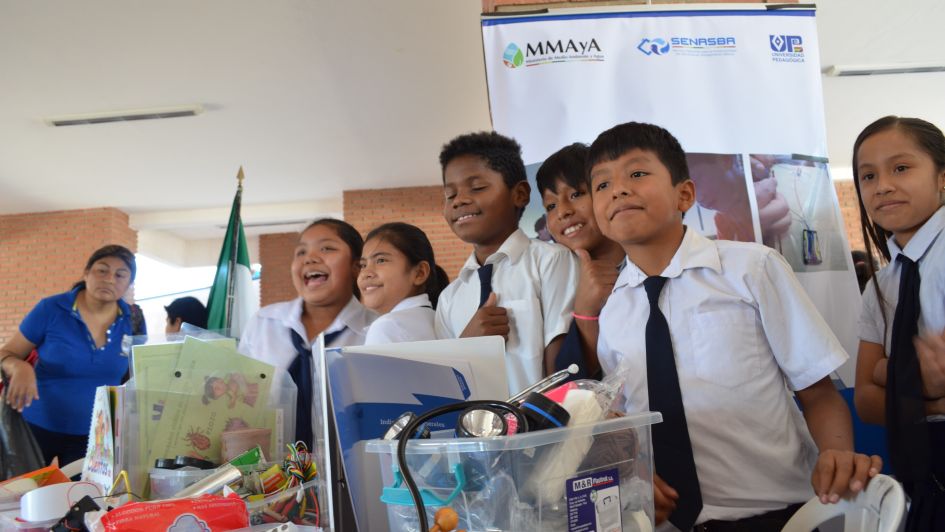In some regions of Bolivia there is no reliable access to clean water and sanitation due to a lack of infrastructure. This is why the international education program Experimento in Bolivia focuses particularly on the topics of health and hygiene and related teaching and learning methods.
It is particularly important that children learn already in schools knowledge of technologies and a sense of co-responsibility with the environment and health. The program also incorporates Bolivia’s indigenous knowledge and distinct geographic features.
The challenge of incorporating these issues into the Bolivian social and geographical context and the plurinational educational system was accepted by the National Service for the Sustainability of Services in Basic Sanitation (SENASBA), the Ministry of Environment and Water, and the Plurinational Pedagogical University of Bolivia. Together they are implementing the “Environmental Education Science and Technology Program with Experiments”, based on the Siemens Stiftung Experimento program, with the support and technical assistance of the German institution GIZ.
The Experimento program provides input to teachers with the application of science and technology through independent experimentation, exploration and comprehension of natural phenomena and technological developments that address the environment, energy, and health. The program is part of the Bolivian education law “Avelino Siñani-Elizardo-Pérez”.
In June 2019, German and Colombian experts trained a group of teachers in El Torno, Santa Cruz de la Sierra to assume the role of multipliers and trainers. For the first phase 40 educational units were defined in the towns of Santa Cruz, Warnes, El Torno (Santa Cruz), Tarija, Yacuiba (Tarija) and Entre Ríos (Cochabamba).
It is estimated that the program will directly and indirectly reach 588 teachers and 12,000 students.



